Afghan cities fall one after another amid US 'peace' talks in Doha
A ceasefire plan to end heavy fighting between Afghan government troops and the Taliban has reportedly been almost agreed as the militants ramp up offensives to seize further territory in the conflict-ridden country.
Local media reports said on Friday that the ceasefire plan aiming to put a halt on the fierce fighting between the two sides for six months was “95% agreed.”
The report came a day after participant countries in the Doha international meeting on Afghanistan called on the Afghan forces and Taliban to expedite the peace process, reach a political settlement and agree on a comprehensive ceasefire as quickly as possible.
In a joint statement, the countries said they would not recognize any government in Afghanistan that is forcibly imposed and are much concerned about the ongoing violence, large numbers of civilian casualties and destruction of infrastructure.
At the invitation of Qatar, special envoys and representatives from China, Russia, Pakistan, the United States and the United Nations, as well as other regional countries and international organizations, have gathered in Doha since August 10 to hold talks over the situation in Afghanistan.
On Thursday, Afghan government negotiators in Qatar offered the Taliban a power-sharing deal in return for an end to fighting amid the militants' rapid advances across the war-torn country.
US, UK to deploy forces to help evacuation
Afghanistan’s TOLO news said in a report that the United States plans to send an additional 3,000 troops to Afghanistan to assist with the evacuation of US embassy staff and American citizens as the Taliban advances on the capital, Kabul.
“These forces are being deployed to support the orderly and safe reduction of civilian personnel at the request of the State Department,” Pentagon spokesman John Kirby said, adding that the forces would accelerate the processing of applications for Special Immigrant Visas for Afghan translators and interpreters.
“We expect to draw down to a core diplomatic presence in Afghanistan in the coming weeks,” Kirby underlined.
Britain also said it would deploy around 600 troops to help its nationals and local translators leave Afghanistan.
The deployment comes as the administration of US President Joe Biden considers the possibility that Kabul could fall to the Taliban militants within 30 days.
The Taliban claimed on Thursday to have seized control of two of Afghanistan's biggest cities — Kandahar and Herat.
The militants also captured Ghazni, situated on the Kandahar-to-Kabul road some 150 km southwest of the capital.
Following the takeover of Kandahar and Herat, Afghan security sources said the Taliban also captured Lashkar Gah, the capital of Helmand province in southern Afghanistan.
The sources said military and government officials evacuated Lashkar Gah after striking a deal with the Taliban.
'US-trained forces' escape led to Kandahar's fall'
Russia’s Special Presidential Representative for Afghanistan Zamir Kabulov said in an interview with Sputnik on Friday that the Taliban took Kandahar not following fighting but just because the Afghan army that was trained by NATO and the United States fled the southern city.
"The capture of Kandahar shows exactly what we discussed: it was taken not as a result of fighting with courageous resistance of the Afghan troops, it was seized because the Afghan army, which the Americans and NATO trained so cheerfully, fled," Kabulov said.
The militants have seized over a dozen provincial capitals since last Friday, as they press ahead with their offensive across Afghanistan.
The group is estimated to be in control of nearly two-thirds of the conflict-ridden country.
Official: Doha peace plan 'fruitless'
In an exclusive interview with Press TV, former Afghanistan's Minister of Information and Culture Abdul Karim Khoram cast doubt on the Doha peace plan between the government in Kabul and the Taliban as it was formed “on the US will.”
“I do not expect a peace plan that is entirely in the hands of the US administration to be fruitful. Therefore, regional countries need to take the initiative or work together with the US on this issue or at least put pressure on the US to work honestly,” Khoram stressed.
The Afghan official dismissed speculation that the Taliban would gain full political power despite the militants’ lightning advances across the country.
“I think the Taliban are in a big misunderstanding, they think that they are the winner of the war… They think that they have defeated the US and forced it to leave Afghanistan; that is why they are expanding their attacks on cities across the country,” Khoram said.
“I think the Taliban will further go on and take more areas but they will never be able to take the full political power in the country unless any new development takes place on the ground,” he added.
President Ghani under pressure to resign?
A US State Department spokesman had to reject reports that Secretary of State Antony Blinken and Secretary of Defense Lloyd Austin had called on Afghan President Ashraf Ghani to resign and allow the formation of a transitional government.
The spokesman dismissed the reports as “completely incorrect” and said, “The decision on who will lead that country (Afghanistan) is up to the Afghans.”
The Taliban, however, have reiterated that they would not participate in any government shared with the Afghan government.
The United States has been withdrawing forces from Afghanistan in a hasty plan devised after two decades of war and occupation. Pentagon spokesman Kirby recently said it was down to the Afghan government and its forces to turn the tide, and there was "not much" the United States could do to help.
Former US president Donald Trump agreed to pull out forces from Afghanistan under a deal with the Taliban last year. The militants pledged not to attack the withdrawing foreign forces, but they made no promise not to attack Afghan government forces or people.
A new US military assessment on Thursday said the Taliban could isolate Kabul in 30 days and potentially take it over in 90 days.
IRGC deputy chief warns of harsh response to any aggression against Iran
Araghchi appreciates Pakistan’s vote against anti-Iran UNHRC resolution
Discover Iran: Historical, natural, and economic tapestry of idyllic Hormozgan islands
ICE detains 2-year-old girl, sends her to Texas despite court order
VIDEO | Trump claims his 'Board of Peace' might replace the UN
VIDEO | Shadows of Rebellion: How Iran’s protests turned violent
FBI agent investigating Minneapolis deadly shooting resigns
Belgium imposes arms embargo on Israel amid Gaza genocide


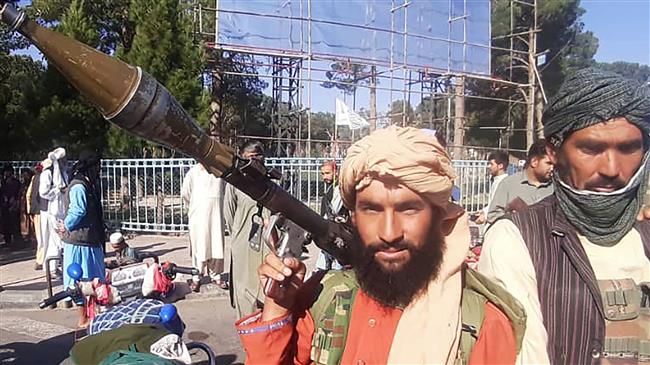
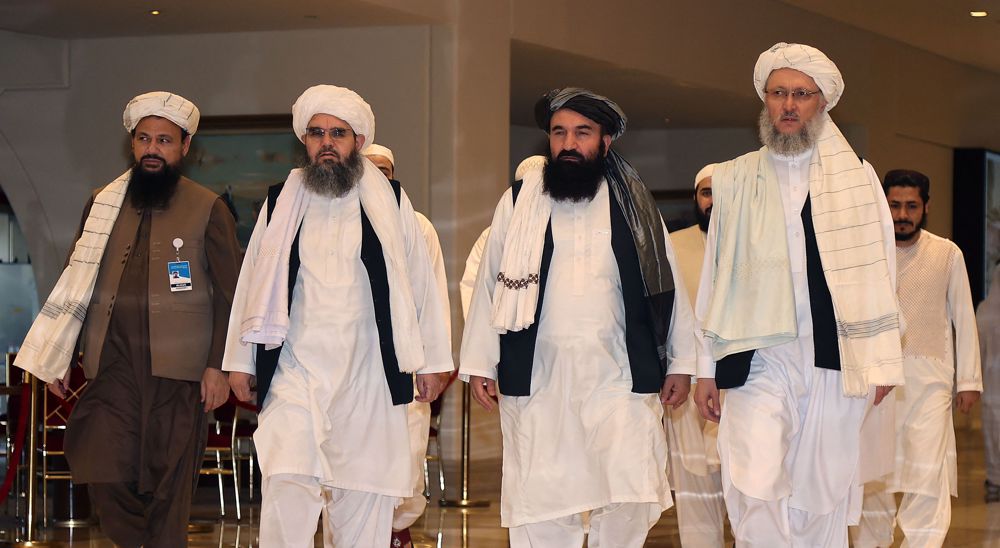
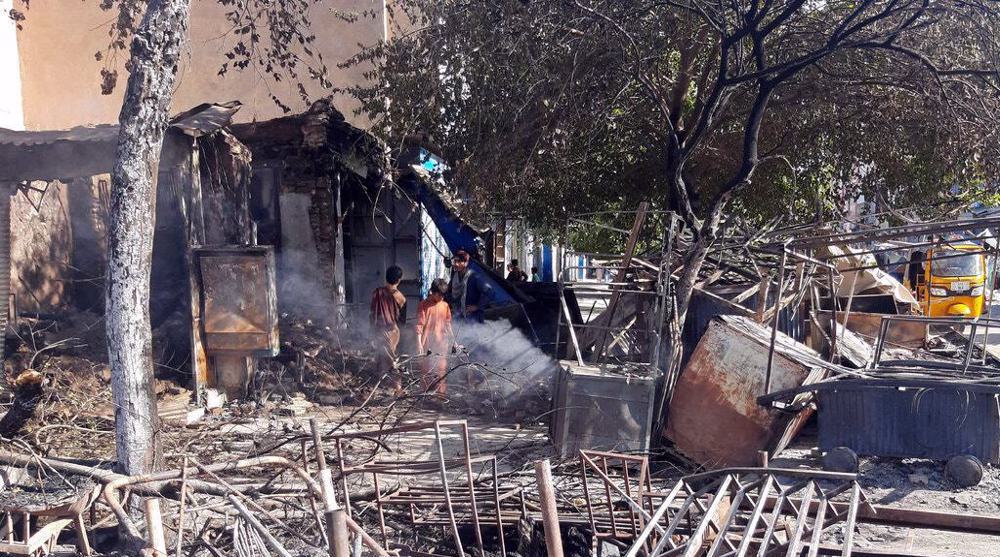
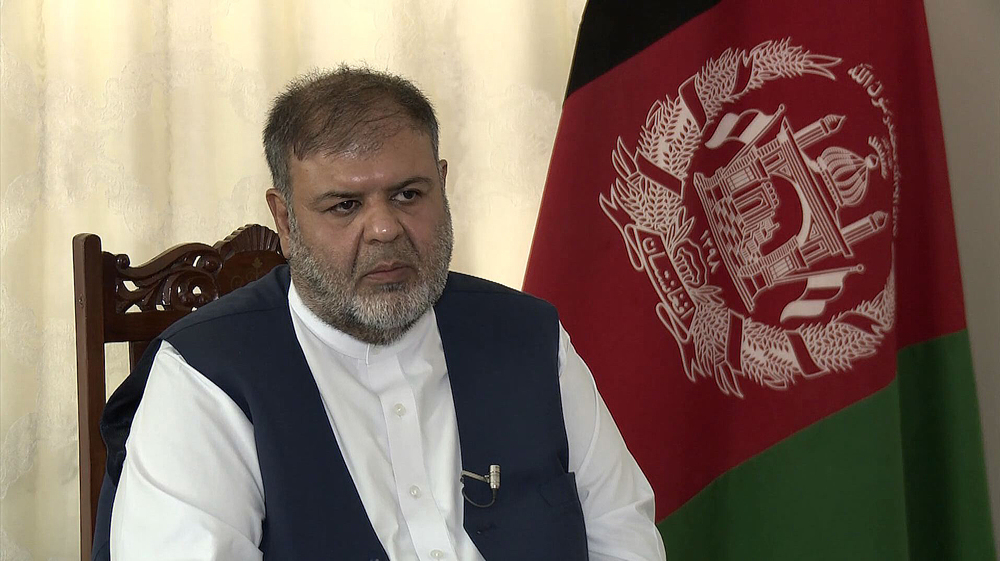
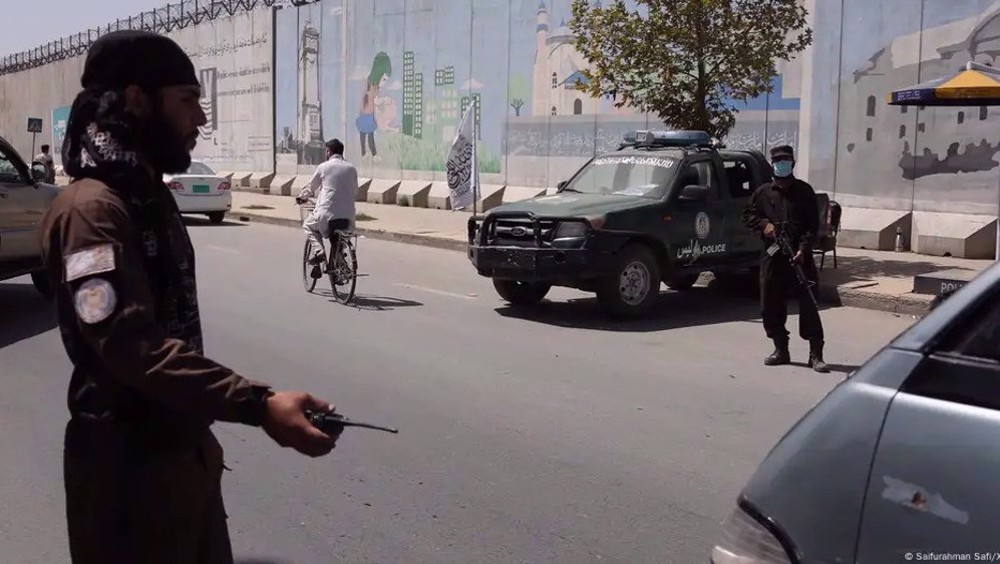
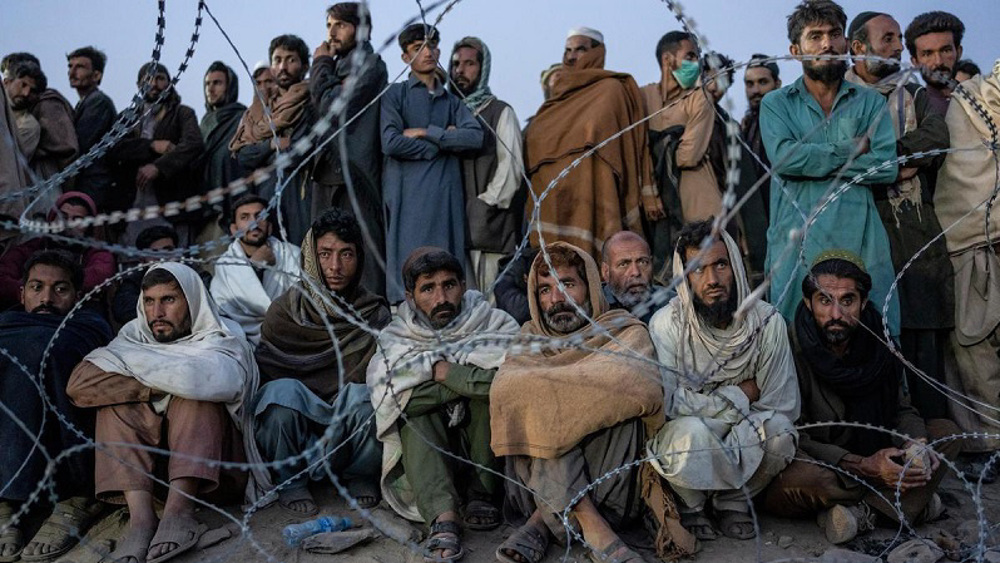





 This makes it easy to access the Press TV website
This makes it easy to access the Press TV website